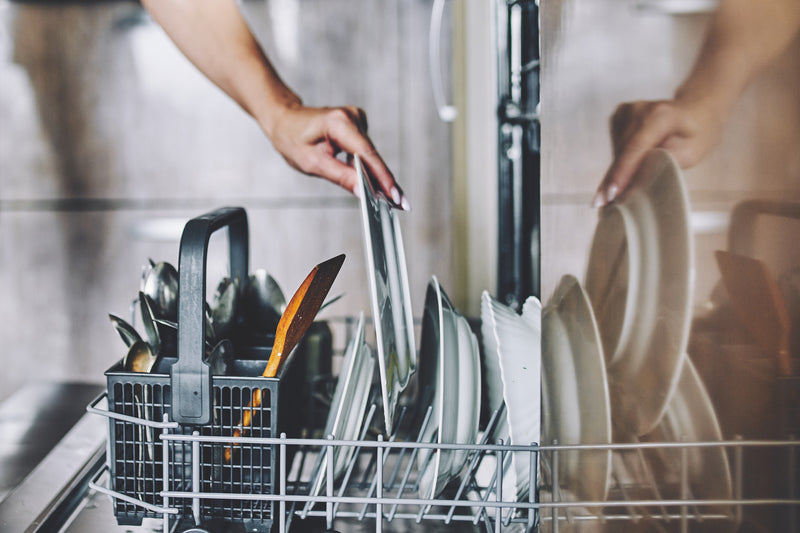How Long Should a Dishwasher Last?
A dishwasher is a valuable appliance in modern kitchens, saving time and effort by automating the task of cleaning dishes. Like all appliances, dishwashers have a finite lifespan influenced by factors such as usage, maintenance, and quality of manufacture.
Related Topics (Sponsored Ads):
This article explores what affects the lifespan of a dishwasher, signs it might be time to replace or repair it, and tips for maximizing its longevity.
Factors Influencing Dishwasher Lifespan
- Quality of Build: The quality of materials and craftsmanship used in manufacturing a dishwasher significantly impacts its durability. Higher-quality models tend to last longer than cheaper alternatives.
- Usage Frequency: How often the dishwasher is used plays a crucial role. A dishwasher used daily may wear out sooner than one used less frequently.

- Maintenance: Regular cleaning and maintenance can extend a dishwasher's lifespan. This includes cleaning the filter, checking and cleaning spray arms, and running maintenance cycles.
- Water Quality: Hard water with high mineral content can lead to mineral deposits and buildup inside the dishwasher, potentially reducing its efficiency and lifespan.
- Brand and Model: Some brands are known for producing longer-lasting dishwashers with better reliability and customer satisfaction ratings.
Average Lifespan of a Dishwasher
The average lifespan of a dishwasher typically ranges from 10 to 15 years. However, several factors can influence this estimate:
- Usage: Heavy use can wear out components faster, potentially shortening the lifespan.
- Maintenance: Proper maintenance can extend the lifespan beyond the average range.
- Water Quality: Hard water can lead to mineral buildup, affecting performance and longevity.
Signs It's Time to Replace or Repair Your Dishwasher
- Age: If your dishwasher is approaching or past its average lifespan and requires frequent repairs, it may be more cost-effective to replace it with a newer, more energy-efficient model.
- Inefficiency: Decreased cleaning performance, spots on dishes, or lingering odors despite regular cleaning may indicate mechanical or drainage issues.
- Noisy Operation: Unusual noises such as grinding or rattling could indicate mechanical problems that may require professional repair or replacement.
- Leaks or Water Damage: Leaks can cause water damage to kitchen cabinets and flooring. Address leaks promptly to prevent further damage.
- Rust or Corrosion: Visible rust inside the dishwasher or on the exterior may signal underlying structural issues that compromise its functionality and safety.
Tips for Maximizing Dishwasher Lifespan
- Regular Maintenance: Clean the filter, inspect spray arms, and remove debris from the drain to ensure efficient operation.
- Use Proper Detergent: Use dishwasher detergent suitable for your water hardness level to prevent buildup and maintain performance.
- Load Correctly: Avoid overloading the dishwasher, which can strain components and affect cleaning efficiency.
- Servicing: Follow manufacturer's guidelines for routine servicing and repairs by qualified technicians.
- Address Issues Promptly: Attend to minor issues promptly to prevent them from escalating into costly repairs or premature replacement.
Conclusion
Understanding the lifespan of a dishwasher and factors that influence its durability can help homeowners make informed decisions about maintenance, repair, or replacement. By investing in regular maintenance, using proper detergents, and monitoring for signs of wear and inefficiency, homeowners can maximize the lifespan of their dishwasher and ensure efficient operation for years to come.




